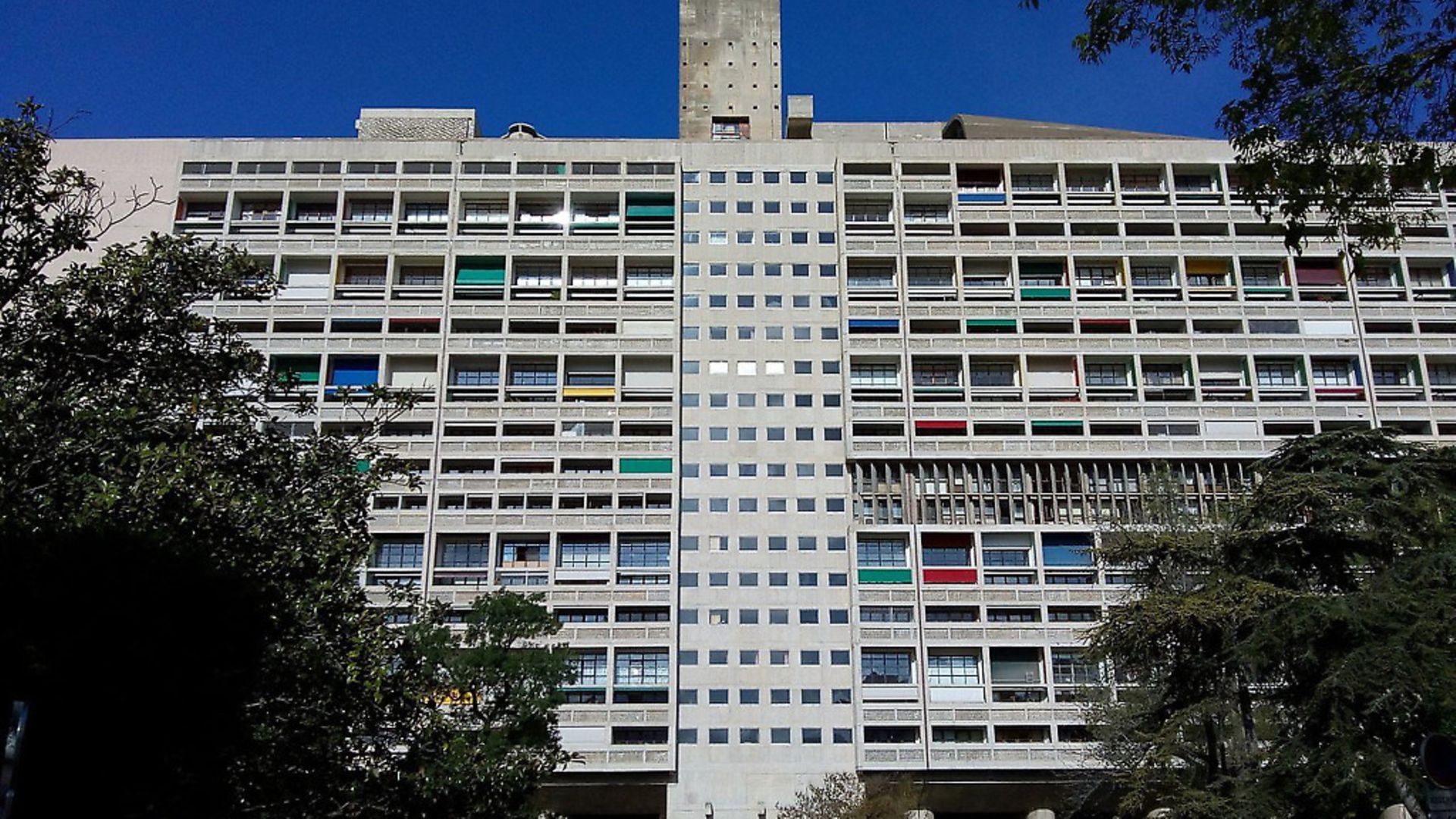
The New European’s new columnist on the contentious nature of multiculturalism in the Cité radieuse, Marseille.
Last week Multicultural Man savoured the delights of the English Cotswolds, where he discovered cottages that cost more than £1.5 million and look like fresh-baked scones, and which are lived in by picayune Englanders with half-baked ideas. But this week, being nothing if not an employer of equal contempt, you find your fearless investigator reposing at the Hotel Corbusier, an echt establishment implanted in the Cité radieuse, the most famous example of the eponymous architect’s concept of Unité d’habitation. If Little Englanders cleave to a past that never was – a merrie realm, where knights were bold rather than Letwin, and hierarchical social relations happily organic – by way of contrast, citizens of nowhere – those cosmopolitan scum – cleave to a future that can never be: one in which all social housing is like la Cité.
Standing proud of the surrounding south Marseilles suburbia on its massive and chunky béton brut piloti, Corbusier’s masterwork features 337 generous duplex apartments running from front-to-back of the building, and ranged over 12 storeys. Double-height corridors lance the length of the building on every third floor, giving an almost cathedral-like sense of spaciousness when compared to the knock-off versions that blight the outskirts of so many British towns and cities. Yes, influenced by Ginzburg’s Narkomfin building in Moscow – the very concretisation of happily organic communist social relations – la Cité was built complete with school, shops and generous communal areas for its progressive proletarian inhabitants.
But that was in 1952. Nowadays the dead weight of culture has descended on the back-to-the-future behemoth, in the form of a UNESCO World Heritage designation. All the inhabitants are upper-middle class professionals, while the only shop is an architectural book one, and the restaurant – Le Ventre de l’Architecte, bien sur – serves a foamy and caramelised menu dégustation at 59 euros a pop. Encrusted on their roughly-finished rooftop terrace, staring out at the strip of azure Mediterranean that forms the horizon, the radiant residents are in a perfect position to witness the ferries arriving from Algeria, the less radiant among them quite possibly seeing only this: yet more potential claimants, intent on waking Europa from her reverie of universal human rights… and social security..
A few kilometres away, on the ragged rocks by the Vallons des Auffes – a tiny notch of pleasure boat harbour, cut from the city’s crumbling coastline – Multicultural Man encountered their descendants: drunk, stoned and sea-drenched, they danced to the repetitive beats and raucous chants emanating from a boom box: four or five young rascals, rowdy – but not malicious – who the surrounding tourists – Dutch girls with nose-rings, German couples in matching Birkenstocks – did their best to ignore. One of the dancers asked me: “Would you like a drink? We’d like to make up for the noise.”
He was wearing a hefty electronic tag on his slim brown ankle, and, as the sun dipped down to the horizon beyond the Château d’If, I wondered if he’d be auto-zapped back to his home in one of the banlieues where people like him are quasi-imprisoned.
‘People like him? What does that mean, Multicultural Man?!’ I hear you demand, dear and sensitive reader – but the fact remains: nomenclature, when it comes to French people of North African descent, remains deeply contentious in this embattled part of the world: a small island of left-liberalism in a great dark sea of Marine le Pen voters.
Strictly speaking they are no longer Algerians – and anyway, France never regarded Algeria as a colony, but rather, annexed it as simply an overseas department. Nor would it be strictly accurate to call these young men Kabyles, since this term – employed generically in France to designate to those of North African origin – actually refers to those Berber tribes who the French overlords favoured, as against their Arab countrymen.
As for Arabe itself, this was also generically – hence incorrectly – used in the France of the late 20th century, together with its derogatory back-slang formulations: Nebeu and hence: Beur. Of course, the sort of people who live in la Cité, while not necessarily socialising with such folk, would never dream of addressing them thus, rather they would be ‘Nos amis Maghrébins…’ Up until 9.11.2001, that is, because thereafter French people of North African heritage began to experience the same sort of bouleversement – when it came to the prejudices of the majority – as their south Asian counterparts in Britain.
Yes, so-called ‘British Muslims’ never really existed as an allegedly homogeneous group until after the terrorist attacks on the Twin Towers – and it’s the same for French ones; while the people so lumped together, began to experience the same sort of totalising prejudice – bigotry red in tooth and claw, previously experienced more intensely by black Africans. Nowadays, the formerly rich semantics of othering have been simplified to the point where we can all simply paraphrase Monty Python’s celebrated observations qua Belgians: “I can think of no more insulting term for French Muslims than… Muslims.”










